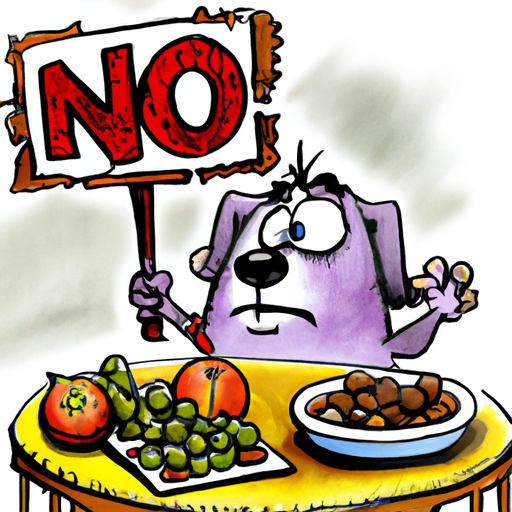As a caregiver for your furry friend, it’s crucial to understand what food your dog should avoid to ensure their health and well-being.
1. Chocolate and Caffeine: A Sweet but Dangerous Temptation
You’ve probably heard it before: chocolate and caffeine are a big no-no for dogs. This is due to the presence of a compound known as theobromine, which dogs cannot metabolize effectively.
- Dark chocolate and baking chocolate have the highest levels of theobromine.
- Symptoms of chocolate poisoning include restlessness, rapid breathing, and seizures.
| Type of Chocolate | Theobromine Level |
|---|---|
| Milk Chocolate | 44-58mg/oz |
| Dark Chocolate | 130-450mg/oz |
| Baking Chocolate | 393-450mg/oz |
2. Grapes and Raisins: Small but Deadly
Although the exact toxic substance in grapes and raisins is unknown, these fruits can cause kidney failure in dogs.
- Even a small amount can be toxic.
- Signs of poisoning include vomiting, lethargy, and depression.
3. Onions and Garlic: Hidden Hazards in Human Foods
Onions and garlic contain thiosulfate, which can cause damage to your dog’s red blood cells, leading to a condition called hemolytic anemia.
- This includes all forms of these foods, including powdered, raw, cooked, or dehydrated.
- Symptoms include weakness, vomiting, and breathlessness.
4. Xylitol: The Sugar Substitute with a Bitter Outcome
Xylitol, a common sugar substitute found in many human foods such as peanut butter and sugar-free gum, can cause insulin release, leading to liver failure in dogs.
- Even small amounts can be lethal.
- Symptoms can include vomiting, loss of coordination, and seizures.
5. Alcohol: Not a Treat for Dogs
Alcohol affects the central nervous system in dogs, even in small amounts.
- This includes not just beverages, but also foods containing alcohol.
- Signs of alcohol poisoning include disorientation, hyperactivity, and excessive panting.
Frequently Asked Questions (FAQs)
Q1: Can my dog eat dairy products?
A: Some dogs might be lactose intolerant, causing upset stomach. Feed in moderation.
Q2: Are nuts safe for dogs?
A: Not all. Macadamia nuts are toxic to dogs.
Q3: Can dogs eat eggs?
A: Yes, but they should be fully cooked to avoid salmonella.
Q4: Is it safe for dogs to eat bones?
A: It’s controversial. Some bones can splinter and cause internal damage.
Q5: Can dogs eat fish?
A: Yes, but it should be fully cooked and deboned.
In conclusion, knowing what foods are harmful to your dog is as important as knowing what they can eat. When in doubt, always consult with your vet before introducing new foods. Good luck, and happy feeding!



